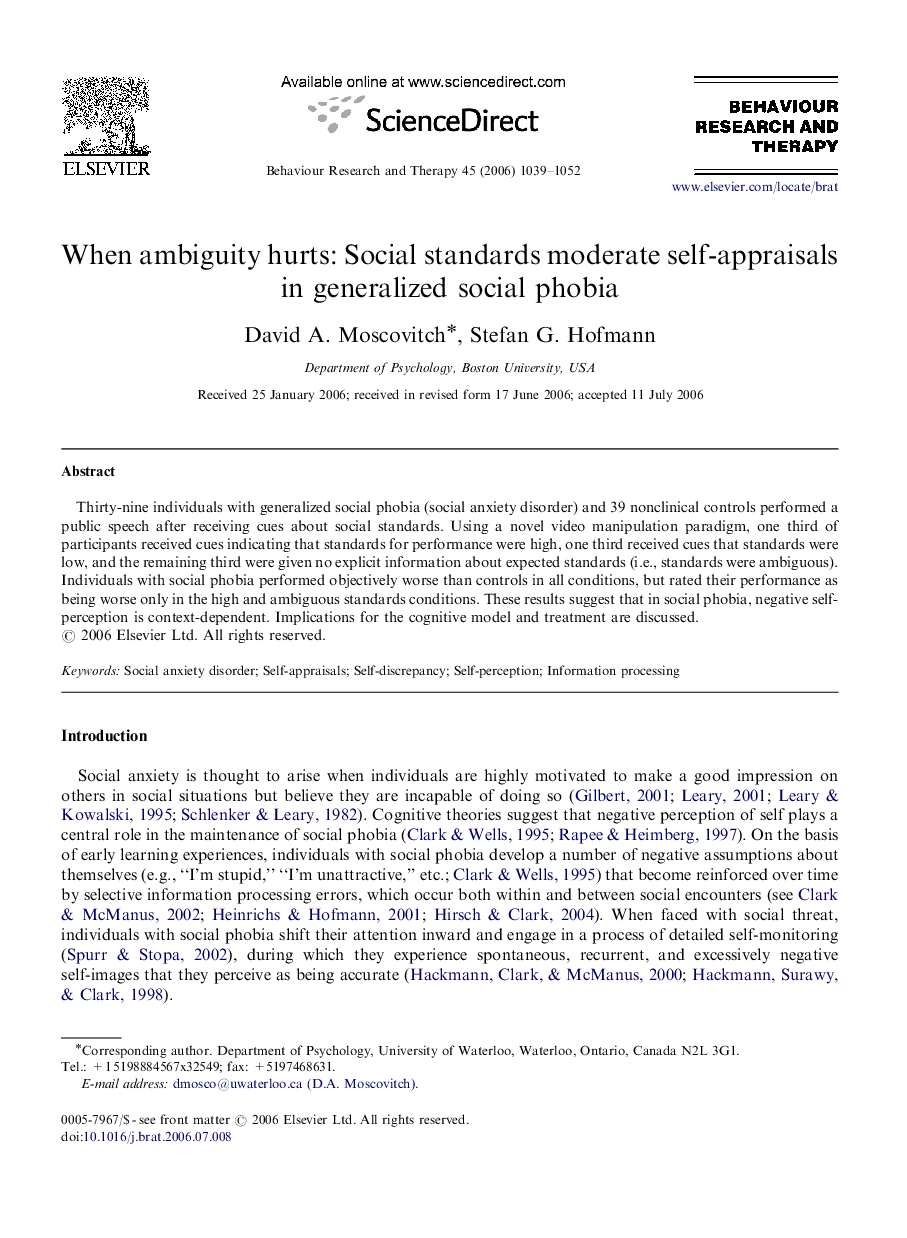| Article ID | Journal | Published Year | Pages | File Type |
|---|---|---|---|---|
| 902342 | Behaviour Research and Therapy | 2007 | 14 Pages |
Thirty-nine individuals with generalized social phobia (social anxiety disorder) and 39 nonclinical controls performed a public speech after receiving cues about social standards. Using a novel video manipulation paradigm, one third of participants received cues indicating that standards for performance were high, one third received cues that standards were low, and the remaining third were given no explicit information about expected standards (i.e., standards were ambiguous). Individuals with social phobia performed objectively worse than controls in all conditions, but rated their performance as being worse only in the high and ambiguous standards conditions. These results suggest that in social phobia, negative self-perception is context-dependent. Implications for the cognitive model and treatment are discussed.
